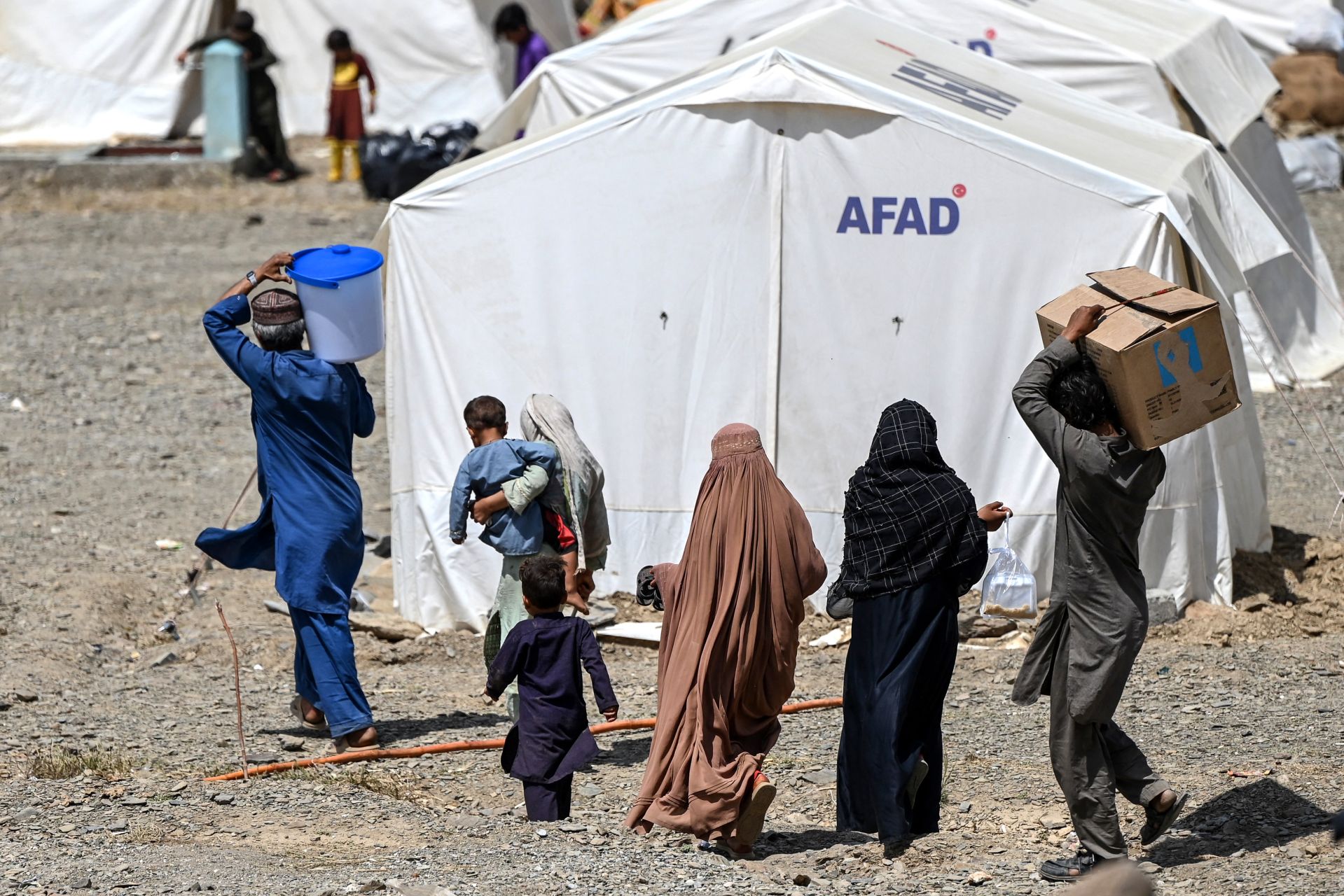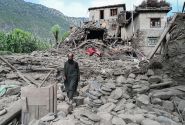- Home
- Middle East
- Islamabad Says More Than 100,000 Afghans Left Pakistan in April

Afghan refugees awaiting deportation to Afghanistan wait with their belongings outside a holding center near the Pakistan-Afghanistan border in Chaman on April 22, 2025. ©Abdul BASIT / AFP
More than 100,000 Afghans have left Pakistan in the past three weeks, the interior ministry reported on Tuesday, following Islamabad's announcement of the widespread cancellation of residence permits.
Calling Afghans "terrorists and criminals," the Pakistani government launched its mass eviction campaign on April 1.
Analysts suggest that the expulsions are aimed at pressuring Afghanistan's Taliban authorities, whom Islamabad accuses of fueling a rise in border attacks.
The interior ministry told AFP that "100,529 Afghans have left in April."
Since the deadline to leave expired at the start of April, convoys of Afghan families have been heading to the border, crossing into Afghanistan, which is mired in a humanitarian crisis.
"I was born in Pakistan and have never been to Afghanistan," 27-year-old Allah Rahman told AFP at the Torkham border on Saturday. "I was afraid the police might humiliate me and my family. Now we're heading back to Afghanistan out of sheer helplessness."
Afghanistan's prime minister, Hasan Akhund, condemned the "unilateral measures" taken by Pakistan after the visit of Pakistan's foreign minister, Ishaq Dar, to Kabul, where they discussed the return of refugees.
Akhund urged the Pakistani government to "facilitate the dignified return of Afghan refugees."
Afghans in Pakistan have reported weeks of arbitrary arrests, extortion, and harassment by authorities, with many of those forcibly returned coming from Sindh and Punjab provinces.
While many are leaving voluntarily to avoid deportation, the UN refugee agency (UNHCR) reported that in April alone, more arrests and detentions occurred in Pakistan (12,948) than in all of last year.
Children Deported
Pakistan's security forces are under immense pressure along the border with Afghanistan as they battle a growing insurgency by ethnic nationalists in Balochistan and the Pakistani Taliban and its affiliates in the northwest. Last year was the deadliest in Pakistan in a decade.
The government frequently accuses Afghan nationals of participating in attacks and blames Kabul for allowing militants to take refuge on its soil—a charge Taliban leaders deny.
Millions of Afghans have fled to Pakistan over the past decades due to wars, with hundreds of thousands arriving after the Taliban returned to power in 2021.
As Pakistan's security and economic challenges deepen, some Pakistanis have grown weary of hosting a large Afghan population, and the deportation campaign has widespread support.
"They came here for refuge but ended up taking jobs, opening businesses. They took jobs from Pakistanis who are already struggling," said 41-year-old hairdresser Tanveer Ahmad, who was giving a customer a shave when he spoke to AFP.
More than half of those being deported are children, according to the UNHCR, which also reports that women and girls among the deportees will return to a country where they are banned from education beyond secondary school and are barred from many sectors of employment.
In the first phase of returns in 2023, hundreds of thousands of undocumented Afghans were forcibly sent across the border in a matter of weeks. In the second phase, announced in March, the Pakistani government canceled the residence permits of over 800,000 Afghans and warned thousands more awaiting relocation to other countries to leave by the end of April.
"Afghans take on jobs Pakistanis consider shameful, like collecting garbage," a shopkeeper told AFP on condition of anonymity. "Who will do that after they're gone?"
By Shrouq TARIQ/AFP
Read more



Comments